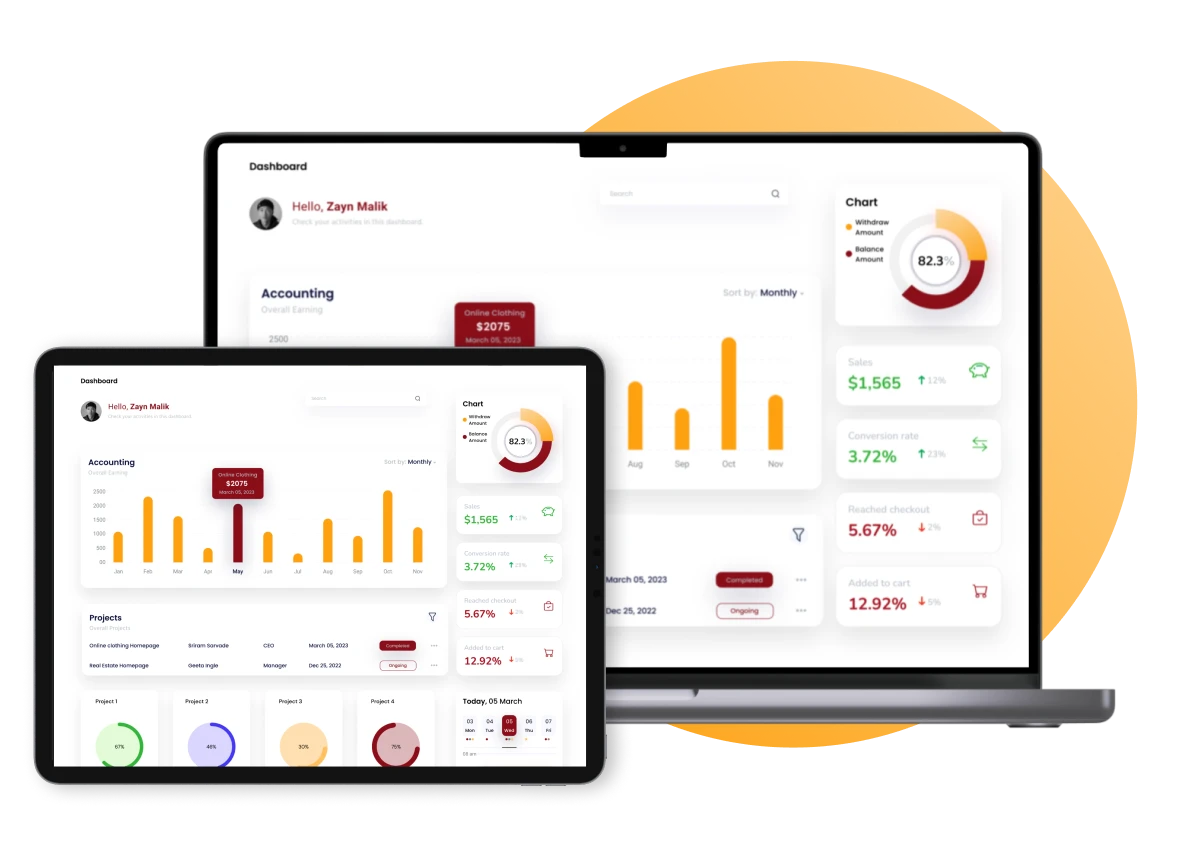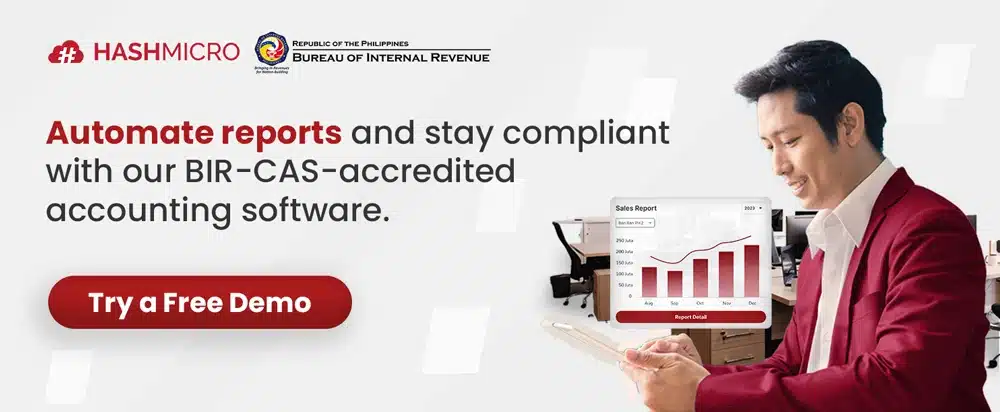Have you ever faced issues with fluctuating sales volumes or struggled to increase customer loyalty in your retail business? Rebate accounting might be the solution you need. This strategy not only helps attract customers with enticing offers but also retains them by rewarding bulk purchases and repeat business.
Implementing accounting software can significantly enhance this process by automating tracking, reducing errors, and providing real-time financial insights. Effectively using rebates and advanced accounting software can resolve these challenges and streamline your business operations. Mag-explore tayo!
Key Takeaways
|
Table of Contents

What is a Rebate Accounting?

In retail, a rebate actively provides customers with a refund after making a purchase. Businesses can structure it as either a fixed amount or a percentage of the product’s price, functioning as a discount that encourages customers to spend more.
For example, cashback rebates return a portion of the money to customers after a purchase, reducing the overall cost management. Another common method is the “buy one, get one free” promotion, where customers receive an additional product, effectively using the value of the free item as a rebate.
By setting specific rebate conditions—such as minimum purchase thresholds or requiring certain products—retailers actively guide consumer behavior to align with business goals. Accounting software helps manage this process, automating rebate tracking and ensuring seamless execution of these strategies.
Types of Rebates
Rebates not only serve as marketing incentives but also as strategic financial levers. Here are three common types of rebates that businesses often use to drive specific buying behaviors and sales strategies:
| Incentive | Description |
|---|---|
| Volume | Triggered when customers or vendors purchase goods in significant quantities. For example, a business might offer a 10% rebate if a customer purchases more than 100 units of a product within a month. |
| Value | Calculated based on the total monetary value of the purchases rather than the quantity. A retailer might offer a 5% rebate on the total purchase value if a customer spends over $500. |
| Product Mix | These rebates aim to diversify the range of products that customers buy. For instance, a rebate might be applied if a customer buys items from different categories as a bundle (a laptop, laptop bag, and a wireless mouse). |
By understanding and strategically implementing these types of rebates while adhering to accounting principles, businesses can effectively guide consumer purchasing patterns, improve sales metrics, and enhance the overall profitability of their operations.
Rebates Example
Rebates serve as powerful incentives in the retail landscape, designed to stimulate customer interest and enhance sales by offering different forms of financial benefits. Here are some common types of rebates:
- Cashback: This is a direct rebate where customers receive a predetermined amount of money back.
- Buy One, Get One Free (BOGO) actively encourages customers to purchase more by offering an additional product at no extra cost, increasing sales volume.
- Delayed Rebate requires customers to pay the full upfront, with the promise of a rebate once they meet certain conditions, such as submitting proof of purchase.
- Instant Discounts: Applied at the point of sale, these rebates reduce the purchase price instantly, providing immediate gratification to customers and a strong incentive to complete a purchase.
Each of these rebate types actively supports different promotional strategies and influences customer behaviors. By using these rebates strategically, businesses can encourage higher spending and tailor incentives to meet specific objectives effectively.
Also read: Top 10 Common Accounting Problems and Solutions in 2025
Challenges in Rebate Accounting

Rebate accounting is often complex, with various challenges that arise, particularly when the process is managed manually. These challenges can lead to costly errors and inefficiencies in financial reporting.
Some challenges are:
- Communication Breakdowns: Misunderstandings between departments like sales, marketing, and accounting often lead to errors in rebate accounting. Without clear communication, teams may fail to accurately track rebate agreements and amounts.
- Managing Accruals: Accruals for tiered incentive programs must be tracked precisely. When handled manually, this process is prone to human error, which can disrupt rebate timing and accuracy.
- Balance Sheet Errors: Incorrect rebate tracking can have serious consequences on financial statements, leading to discrepancies in the balance sheet and raising concerns during audits.
Automating rebate accounting can mitigate these challenges, improving communication, ensuring accurate accrual tracking, and maintaining clean financial data to prevent errors and audit issues.
How to Use Rebates for Your Retail Customers Efficiently?
To use rebates efficiently for your retail customers, it’s essential to automate rebate tracking and management. Manual handling of rebates often leads to errors, delays, and miscommunication between departments. By using automation accounting software, you can ensure that rebate terms are clearly defined, tracked in real-time, and processed quickly.
Additionally, offering various types of rebates, such as cashback can motivate customers to make larger purchases. Automation not only simplifies the calculation of these rebates but also ensures timely payout and repeat business. Efficient rebate management streamlines internal processes while providing a seamless experience for customers.
HashMicro’s Accounting Software for Seamless Rebate Accounting

Managing rebate accounting can be a complex task, but with HashMicro’s Accounting Software, it becomes significantly more streamlined and error-free. This software automates rebate processes, ensuring timely payments, accurate tracking, and seamless financial integration.
Some features directly support effective rebate accounting:
- Profit & Loss vs Budget & Forecast: This feature allows businesses to align their actual rebate performance with their forecasted budgets, ensuring rebate programs remain profitable and on track.
- Cashflow Reports: Cash flow insights are essential in rebate management, especially when dealing with delayed or tiered rebates. This feature helps businesses monitor the cash impact of rebates on overall liquidity.
- Financial Statement with Budget Comparison feature directly compares financial statements with budgeted rebate amounts, ensuring accurate reflection of rebates in reports and quickly addressing any discrepancies.
- Bank Integrations – Auto Reconciliation feature actively reconciles rebate-related payments, eliminating manual errors and ensuring that your financial records consistently reflect all transactions accurately.
With these features, HashMicro’s Accounting Software simplifies the complexities of rebate accounting and optimizing management for growth and customer satisfaction. While there are many best accounting software available, none are as comprehensive as HashMicro in addressing the specific needs of rebate accounting.
Conclusion
Rebate accounting plays a crucial role in driving sales and customer loyalty for retail businesses. By implementing different types of rebates, businesses can strategically influence customer behavior to increase sales and profitability. However, managing rebates manually can lead to errors and inefficiencies.
To overcome these challenges, adopting accounting software like HashMicro can streamline rebate management processes. With features like Profit & Loss vs Budget tracking and automated Bank Reconciliation, businesses can improve their overall financial oversight. Ready to see the benefits? Try our free demo today!
FAQ Around Rebate Accounting
-
What is a rebate in accounting?
A rebate in accounting is a partial refund to buyers after a purchase, reducing the final cost. It helps businesses incentivize bulk purchases or promote specific products while adjusting sales revenue accordingly.
-
What is rebate with example?
Rebate is a refund after purchase; for example, cashback gives buyers a portion of the purchase price back, reducing the total cost. “Buy One, Get One Free” is another form of rebate, encouraging higher sales.
-
What is an account rebate?
An account rebate is a financial adjustment that credits a portion of the purchase price back to the buyer’s account. It is recorded as a deduction in revenue or accounts payable, depending on when the rebate occurs.





































